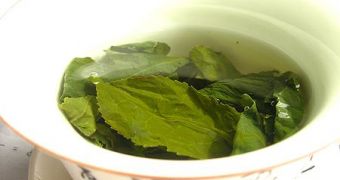Prostate cancer is a form of the disease affecting the prostate gland in men, and its effects can be very severe, leading even to death. Because the condition is very widespread, like the breast and cervical varieties are in women, researchers have been trying to identify a way of stopping it, or at least slowing down its development, for quite some time now. A recent study shows that prostate cancer patients who consume the active ingredients in green tea show fewer serum markers predicting the progression of the terrible disease.
“The investigations agent used in the trial, Polyphenon E [provided by Polyphenon Pharma] may have the potential to lower the incidence and slow the progression of prostate cancer,” Professor James A. Cardelli, PhD, the director of basic and translational research in the Feist-Weiller Cancer Center, at the LSU Health Sciences Center-Shreveport, explains.
The paper, which appears in the American Association for Cancer Research's publication Cancer Prevention Research, is one of the few to date to look at the effect that green tea has on biomarkers, which modern medicine uses to assess a person's risk of contracting and developing a certain disease.
“These studies are just the beginning and a lot of work remains to be done, however, we think that the use of tea polyphenols alone or in combination with other compounds currently used for cancer therapy should be explored as an approach to prevent cancer progression and recurrence,” the expert adds, quoted by ScienceDaily.
“There is reasonably good evidence that many cancers are preventable, and our studies using plant-derived substances support the idea that plant compounds found in a healthy diet can play a role in preventing cancer development and progression,” he says.
As part of the experiments, the expert's group looked at more than 26 men, aged between 41 and 72, which were scheduled for radical prostatectomy. The patients were studied for about 12 days to 73 days, and, during this time, they were asked to take four capsules of Polyphenon E, the rough equivalent of 12 normally brewed cups of green tea. The team followed the levels of several biomarkers at the same time, including the hepatocyte growth factor (HGF), the vascular endothelial growth factor (VEGF) and the prostate specific antigen (PSA).
After the treatment, they noticed a sharp decrease in the levels of serum markers, which, in some cases, was equivalent to more than 30 percent. The conclusion that Cardelli derived from the results was that using green tea extracts in high amounts, potentially alongside other drugs already employed for cancer treatment, could be an avenue of research worth exploring, if not for its seemingly immediate benefits, at least for its potential of stopping the progression of the disease for a while.

 14 DAY TRIAL //
14 DAY TRIAL //